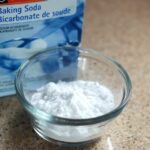Understanding Gray Hair
One of the most visible signs of aging is the graying of hair. Understanding the process of hair graying and the factors that contribute to it is essential if you seek to assist your clients in achieving grey hair faster.
The Science Behind Hair Graying
Graying of hair is a natural phenomenon that occurs as we age. Hair follicles contain pigment-producing cells called melanocytes, which produce melanin, the pigment responsible for hair color. As we age, these melanocytes gradually decrease in functionality, leading to a decrease in melanin production and, consequently, graying of hair.
The development of gray hair is ultimately due to a decrease in the number of melanocytes. Oxidative stress from hydrogen peroxide build-up or ultraviolet light can lead to follicular melanocyte death and gray hair development.
Although, currently, there is no scientifically proven way to speed up the process of getting gray hair, understanding the factors that contribute to graying can help in managing the process better.
Factors Contributing to Premature Graying
Several factors contribute to premature graying of hair. Genetics play a significant role in determining when and how quickly a person’s hair turns gray.
Beyond genetics, other factors such as stress, smoking, and exposure to certain chemicals and radiation can accelerate the graying process. Chronic stress can lead to oxidative stress and damage to the melanocytes, which can result in premature graying.
Smoking has also been linked to premature graying, with smokers being two and a half times more likely to have gray hair before the age of 30 compared to non-smokers (Washington Post).
Nutritional deficiencies, particularly vitamin B-12 and vitamin D deficiency, can contribute to premature graying of hair.
Certain medical conditions, such as vitiligo, thyroid disorders, and alopecia areata, can cause the loss of hair color (graying) in patches.
Understanding these factors can help in managing premature graying and guiding clients on the best possible ways to achieve grey hair faster.
Nutrition and Hair Health
When it comes to achieving gray hair faster, or maintaining the vibrancy of your current hair color, nutrition plays a pivotal role. Inadequate nutrition can expedite hair graying, while a balanced diet rich in certain nutrients can contribute to overall hair health and color retention.
Essential Nutrients for Hair
Certain vitamins and minerals are crucial for maintaining hair health and color. Vitamins B12, B6, and B9, for instance, are important for melanin production and maintaining the health of the hair follicles. Melanin, the pigment that gives hair its color, relies on these nutrients for its production.
Other components like vitamin D and copper also play a significant role in melanin production and are necessary for hair health. Additionally, some studies suggest that biotin, a B vitamin, may help promote hair health and potentially slow down the graying process.
| Nutrient | Role in Hair Health |
|---|---|
| Vitamin B12 | Important for melanin production |
| Vitamin B6 | Maintains health of hair follicles |
| Vitamin B9 | Promotes healthy hair growth |
| Vitamin D | Contributes to melanin production |
| Copper | Essential for melanin production |
| Biotin | Promotes overall hair health |
Impact of Deficiencies on Hair Color
Nutritional deficiencies can significantly impact hair color and speed up the graying process. Low levels of vitamin B-12, iron, and copper, for instance, can affect the production of melanin and contribute to premature graying of hair (Medical News Today).
Certain risk factors, such as a vegetarian diet and atopy, have also been associated with premature gray hair. Deficiencies caused by severe protein malnutrition can lead to hair hypopigmentation, a phenomenon where the hair loses its natural color.
By understanding the role of nutrition in hair health and color, you can make informed dietary choices to either speed up the graying process or maintain your hair’s natural color. Remember, a balanced diet rich in essential nutrients is key to maintaining overall hair health.
Lifestyle and Gray Hair
Your lifestyle can play a significant role in determining when and how quickly your hair turns gray. Two notable factors that contribute to premature graying are stress and smoking.
Stress and Its Effect on Hair Color
Stress has a profound impact on the body, including hair health and color. It has been linked to premature graying as it can lead to oxidative stress and damage to the melanocytes, the cells responsible for producing hair color. Oxidative stress can damage these cells, leading to a decrease in melanin production, which in turn results in gray hair.
Chronically high stress levels can speed up the graying process, leading to the appearance of gray hair earlier than usual. Therefore, it’s crucial to manage stress effectively if you’re seeking to slow down the graying process or you’re wondering how to get grey hair faster.
The Role of Smoking in Hair Graying
Smoking is another lifestyle element that has been linked to premature graying of hair. Research indicates that smokers are two and a half times more likely to have gray hair before the age of 30 compared to non-smokers.
The link between smoking and gray hair can be attributed to the harmful substances in cigarette smoke, which can cause oxidative stress and damage hair follicles. This damage can disrupt melanin production, leading to gray hair (Healthline).
| Lifestyle Factor | Impact on Graying |
|---|---|
| Chronic Stress | Increases oxidative stress, damages melanocytes, and accelerates graying |
| Smoking | Causes oxidative stress, damages hair follicles, and promotes premature graying |
In conclusion, your lifestyle choices can significantly influence the health and color of your hair. If you’re interested in achieving grey hair faster, understanding these influences can help you make informed decisions. However, it’s crucial to remember that while some might strive for gray hair, others might see it as a sign of aging. Therefore, maintaining a healthy lifestyle is essential not only for your hair health but also for your overall wellbeing.
Natural Aids to Slow Graying
While it’s natural for hair to turn gray with age, some might wish to slow down the process. Several natural remedies can help darken gray hair and restore its original color. In this section, we will explore the benefits of curry leaves and coffee, as well as amla and coconut oil, in slowing down the graying process.
Curry Leaves and Coffee
Curry leaves can help darken gray hair. They contain B vitamins and minerals that nourish the hair follicles and promote the production of melanin, the pigment responsible for hair color (Be Beautiful).
Coffee, when mixed with henna, can also be applied to the hair to darken gray strands. The natural dye in henna helps cover the gray hair, while the coffee adds depth and richness to the color (Be Beautiful).
Try the following mixture for an at-home remedy:
| Ingredient | Quantity |
|---|---|
| Henna | 2 tablespoons |
| Coffee (brewed) | 1 cup |
Benefits of Amla and Coconut Oil
Amla, also known as the Indian gooseberry, is rich in antioxidants and vitamin C. Incorporating amla in your hair care routine can stimulate melanin production, helping to prevent premature graying and darken gray hair.
Coconut oil, combined with lemon juice, can also enhance the color of your hair. The nourishing properties of coconut oil, combined with the natural bleaching effect of lemon juice, can darken gray hair.
To create this mixture, follow these proportions:
| Ingredient | Quantity |
|---|---|
| Coconut Oil | 2 tablespoons |
| Lemon Juice | 2 teaspoons |
These natural aids, along with a diet rich in vitamins B12, B6, and B9, can help slow the graying process and maintain the health of your hair follicles. As you journey toward embracing your gray hair, remember that every strand tells a story. It’s all about aging gracefully and finding the right balance between nature’s course and your personal style.
Medical Interventions for Gray Hair
When it comes to achieving gray hair faster, medical interventions may be a promising avenue. These encompass a range of treatment options for hair repigmentation and the role of medications in the graying process.
Treatment Options for Hair Repigmentation
Although there is currently no medical treatment available specifically for hair repigmentation, numerous studies have documented medication-induced gray hair repigmentation. Out of 27 studies, 6 reported on gray hair repigmentation as a primary objective, while 21 documented medication-induced gray hair repigmentation as an incidental finding.
Medications that have been observed to induce gray hair repigmentation encompass anti-inflammatory medications, stimulators of melanogenesis (pigment production), vitamins, a medication that accumulates in tissues, and a medication with an undetermined mechanism.
Further, there is low-quality evidence that supplementation with some components of the vitamin B complex can promote the darkening of gray hair. However, more research is needed to validate these findings and understand their potential applications in practice.
The Role of Medications in Hair Graying
Gray hair is a common sign of aging, with 6-23% of people worldwide having 50% gray hair by the age of 50. The onset of graying typically occurs in the mid-30s for Caucasians, late-30s for Asians, and mid-40s for Africans.
Graying is primarily due to a decrease in the number of melanocytes, the cells that produce hair pigment. This can result from a defect in the melanocytic stem cells or destruction of the follicular stem cell population. Factors such as oxidative stress from hydrogen peroxide accumulation or ultraviolet light exposure can also contribute to follicular melanocyte death and gray hair development.
Some causes of premature hair graying, such as nutritional deficiencies in vitamin B12, iron, and copper, as well as severe protein malnutrition, are reversible. Lifestyle factors, such as a vegetarian diet and atopy, have been significantly associated with premature gray hair.
In conclusion, while there is no definitive medical treatment for hair repigmentation or to get gray hair faster, ongoing research into the effects of certain medications and nutritional supplements offers promising results. However, further investigation is necessary to establish effective and safe treatment options.
Tips to Maintain Hair Health
Whether you’re seeking to accelerate the graying process or just maintain the health of your hair, there are certain practices you should adopt. A healthy diet and avoiding harmful elements can play a significant role in achieving your hair goals.
Healthy Diet for Hair
The saying “you are what you eat” holds true, especially when it comes to hair health. One of the key ways to keep your hair healthy and potentially slow down the graying process is by consuming a balanced diet. This includes foods rich in essential vitamins such as B12, B6, and B9. These vitamins are important for melanin production, which determines the color of your hair, and maintaining the health of the hair follicles (Be Beautiful).
In addition, some evidence suggests that nutritional deficiencies, such as low levels of vitamin B-12, iron, and copper, can contribute to premature graying of hair (Medical News Today). Therefore, ensuring that your diet includes these nutrients can help maintain your hair’s natural color longer.
However, it’s important to note that while a well-balanced diet can contribute to overall hair health, there is currently no scientific evidence to support the effectiveness of supplements, vitamins, or home remedies in preventing or reversing gray hair.
Avoiding Harmful Chemicals and Radiations
Another critical step in maintaining healthy hair is to avoid harmful chemicals and radiations. This includes smoking and excessive sun exposure, which can both contribute to premature graying.
When it comes to covering grays, hair dyes and colorants can be used temporarily. However, it’s important to choose products that are gentle on the hair and scalp. Always follow the instructions carefully to avoid damage and potential adverse reactions. Opt for hair color products with natural ingredients, and avoid those with harsh chemicals that can damage your hair and scalp.
In conclusion, while there’s no surefire way to speed up the graying process, adopting a healthy diet and lifestyle, while avoiding harmful elements, can contribute to your overall hair health. This can help you embrace the graying process gracefully when the time comes.





